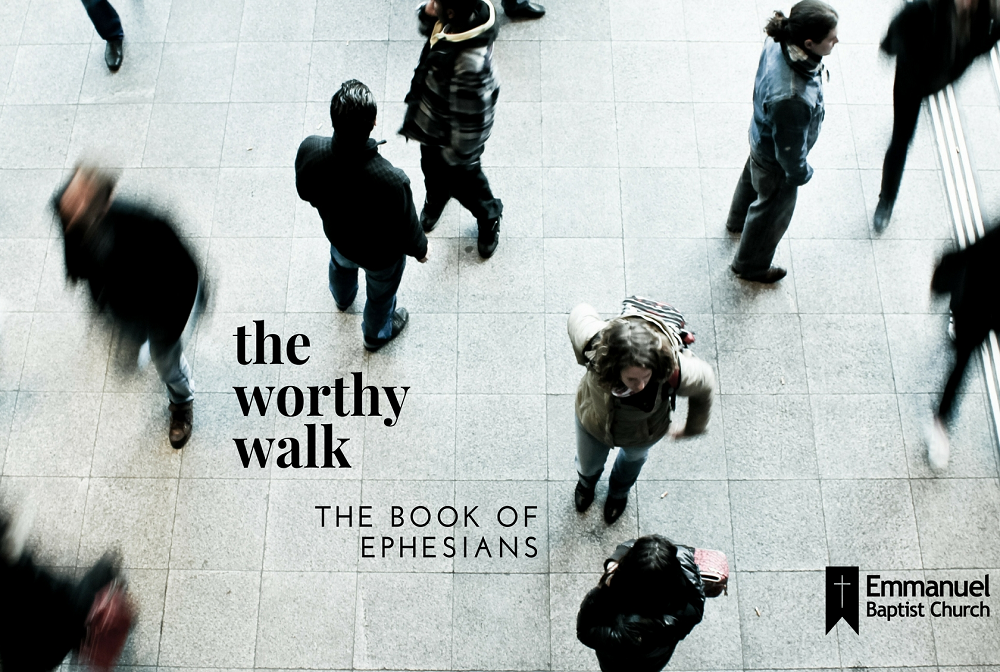Embracing Humility
Series: The Worthy Walk Topic: Humility Scripture: Ephesians 6:1–9
If you were to imagine the greatest way to put the gospel on display to the world, what would be your strategy? This is the question Ephesians 5:18-6:9 addresses, because God chose to put the gospel on display through gospel-centered churches and families. Ephesians 5:21 instructs believers to “submit to one another out of reference for Christ” and then addresses three pairs of relationships where loving-leadership and humble-submission are embodiments of the gospel.
Pastor John preached on marriage a few weeks ago as the first of these relationships (Eph. 5:22-33). This is the first relationship and the Apostle Paul makes it clear how marriage is built upon the relationship of Christ and the Church. The husband should love his wife as Christ loved the Church and gave himself up for her; and the wife lovingly submits to her husband in the same way that we love and follow Jesus Christ.
There is an intentional consistency in the Greek text for how the different people are addressed, and this functions similar to how bullet-points work today. It is an obvious way to list something up top (Eph. 5:18-21 … be full of the Holy Spirit by drawing near to God in worship and through submitting to one another) and then making a list of the different ways that initial command takes place (instructions to wives/husbands, children/fathers, slaves/masters).
The second relationship focuses on children and their parents. Children who do not honor or respect their parents grow into adults who do not know how to live under any other authority. Christians practice living under God’s authority by living under human authority. Likewise, parents should be neither negligent nor harsh, instead they take their cues from the way God “parents” his Church: with love, grace, mercy, and authority.
Finally, Paul addresses slaves and their masters. This is a difficult passage for us to understand because of how terribly this has been twisted throughout history as a biblical excuse to own, sell, and mistreat fellow people who are created in the image of God. Slavery in the biblical world was radically different from the chattel slavery which captured African men and women and sold them in America and Europe. Slavery in biblical times did not run according to ethnicity or gender. In fact, many people sold themselves into slavery as a way to pay off debt (similar to “indentured servitude”) and slaves had many protections from Scripture. The Old Testament explicitly says that any slave who is beaten and injured by his master should be set free, and 1 Timothy 1:10 even lists slave-traders among those who have no inheritance in heaven. And yet, Paul does instruct them to cling to the grace of God in their daily attitudes towards their masters. He also commands masters to be kind and respectful towards their slaves, remembering that both slaves and masters live under the authority and judgment of God.
In all these things we see the daily fruit of the gospel. As husbands and wives, children and parents, workers and bosses… we strive to live in light of the grace of God. We want God’s leadership to be the pattern of our leadership, and we want our humility before God to be demonstrated in our relationships with others. This doesn’t make us spineless pushovers. Instead, it fills us with strength that is anchored in heaven because our identity and security isn’t dependant on what other people think about us. Therefore, we are both confident and humble enough to lead with grace and to submit with humility. This type of life flows from our daily experience of God’s grace towards us in Christ, and it puts that grace on display for all to see.
other sermons in this series
Jan 21
2018
Who Am I and Who Are You?
Preacher: Pastor Pete Hoglund Scripture: Ephesians 6:21–24 Series: The Worthy Walk
Jan 14
2018
The Equipped Christian
Scripture: Ephesians 6:10–20 Series: The Worthy Walk
Nov 26
2017
The Great Mystery of Marriage
Scripture: Ephesians 5:21–33 Series: The Worthy Walk
